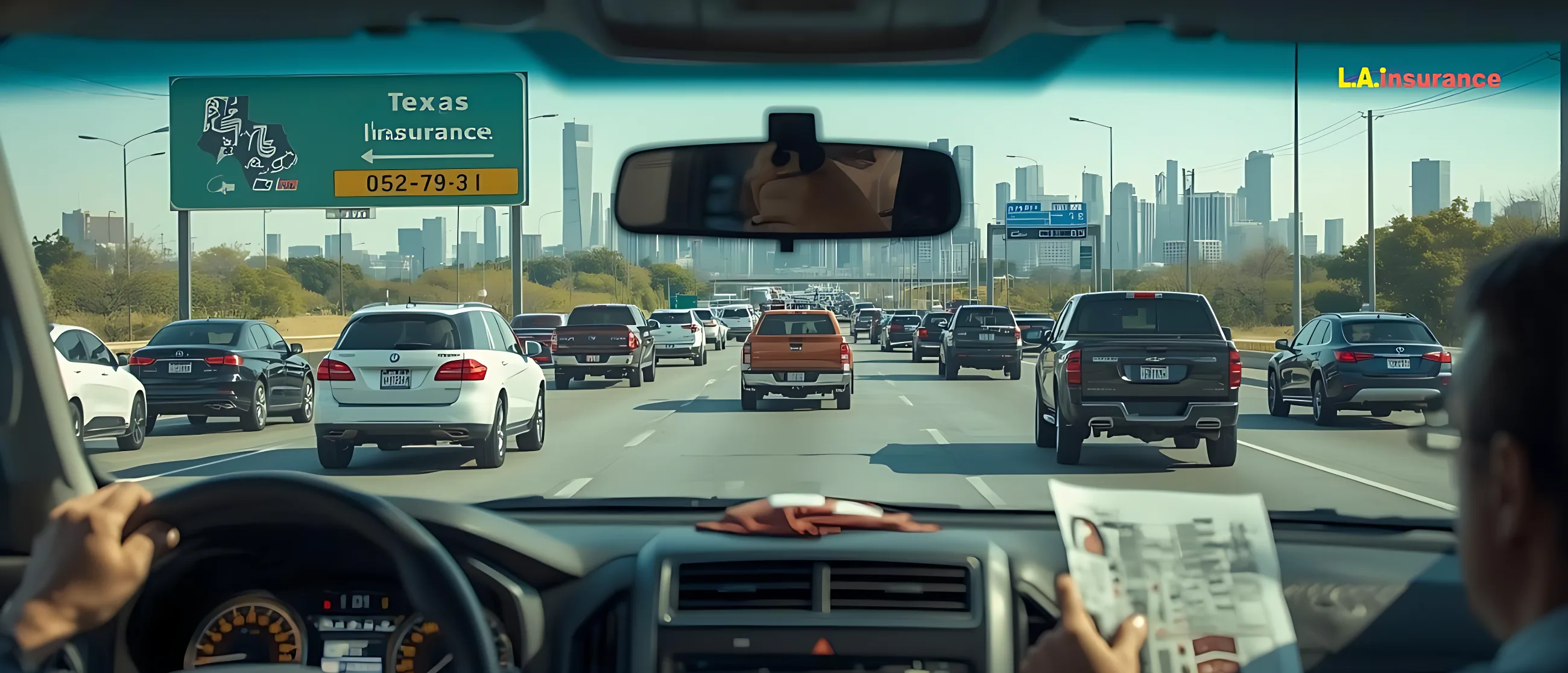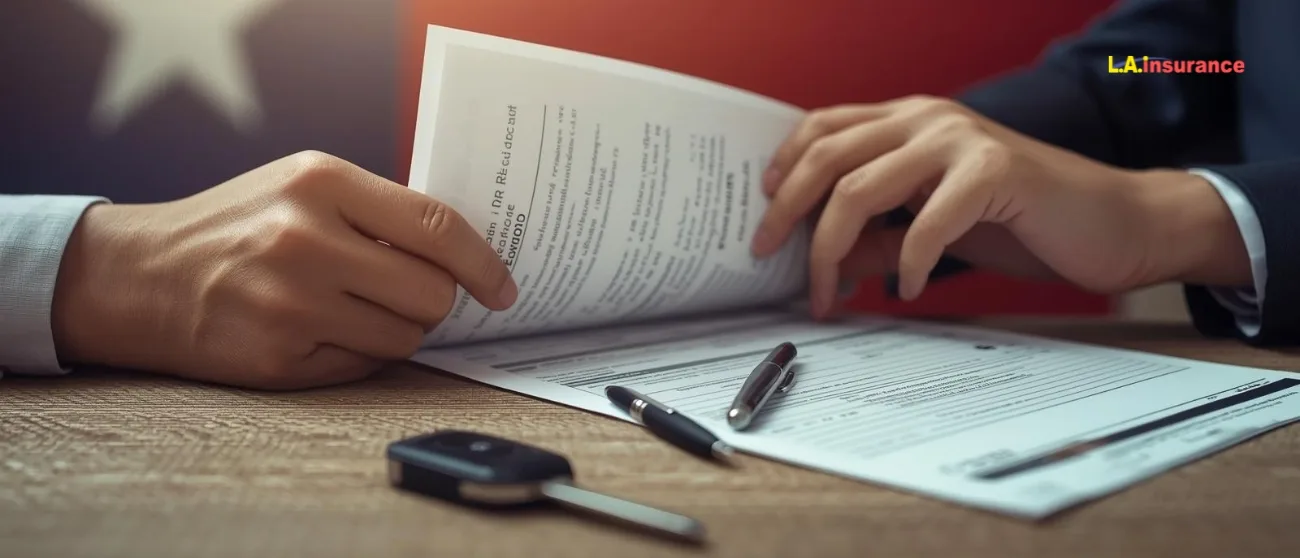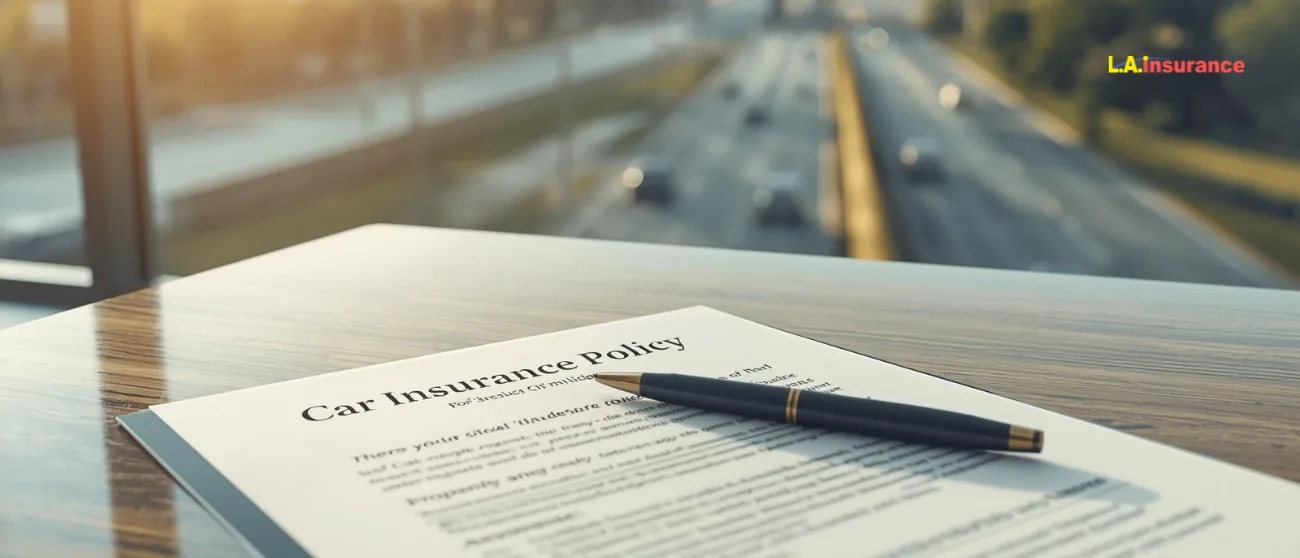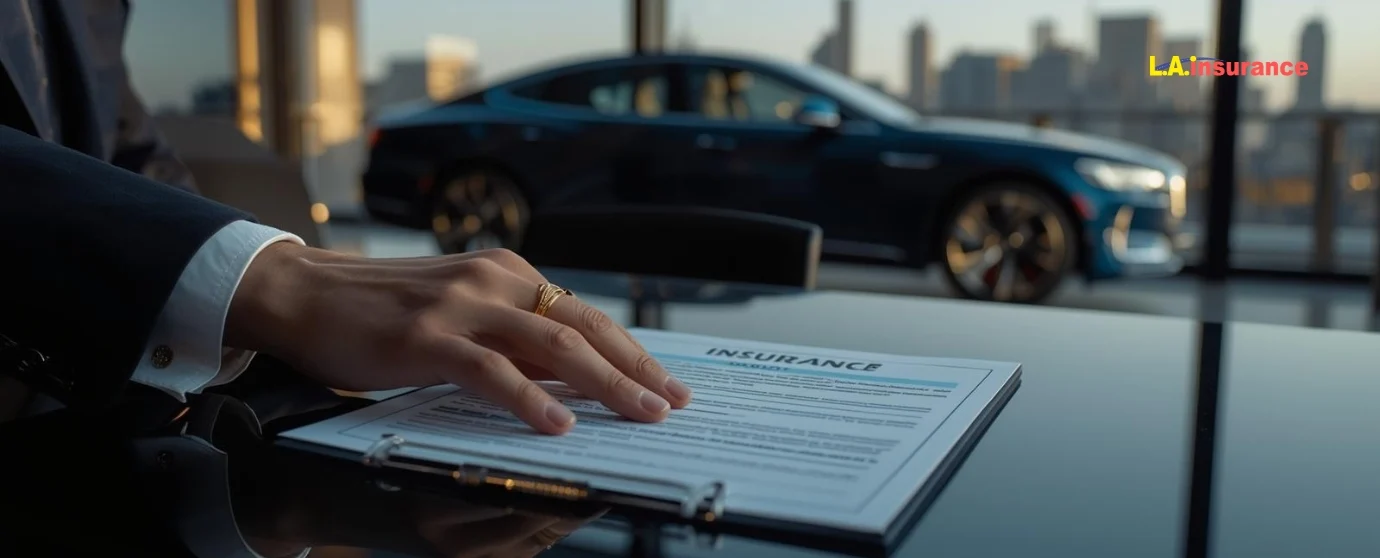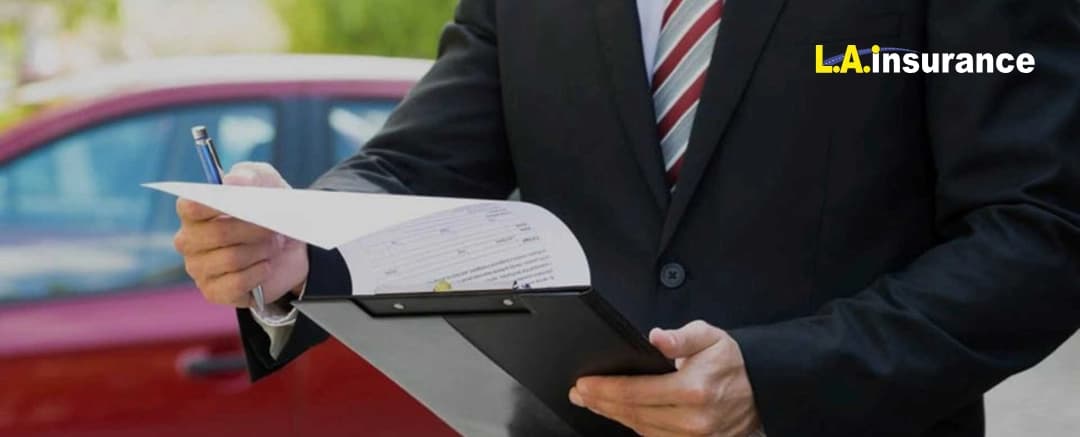
Publish Date: 19-04-2025
Auto Insurance
Last Updated: 15-12-2025
Does a Rebuilt Title Affect Insurance?
When buying a car, many people are drawn to vehicles with rebuilt titles because of their lower prices. However, these bargains often come with a catch. A rebuilt title signals that the car was once heavily damaged and declared a total loss before being repaired and deemed roadworthy. While such vehicles may be safe to drive, insurance can become a major challenge. Higher premiums, limited coverage, and hesitant insurers are common hurdles. So, how does a rebuilt title affect insurance? In this article, we’ll discuss everything a policyholder must know about a rebuilt car title and its insurance procedures. Let’s start over.
What Is a Rebuilt Title and How Does It Differ from a Clean Title?
When purchasing a vehicle or insuring it for financial protection, you need to know its title status. Title reflects a car’s history and determines if it’s safe to drive or insure. Among these, rebuilt titles and clean titles are starkly different. Read on if you don’t know clearly what different types of car title status means.
What Does “Declared a Total Loss” Mean?
Before you learn about the car titles, let’s take you through some basics. If you see a car labeled a “total loss”, this means that its repair costs exceed its market value. This often happens after severe accidents, floods, or theft. In such case, insurance companies step in, declare the vehicle salvaged, and issue a salvage title. While these cars are initially deemed unsafe, some can be repaired and pass rigorous inspections, and earn a rebuilt title. This brings us to our next question what’s the difference between a rebuilt title and salvaged title are.
How Is a Rebuilt Title Different from a Salvaged Title?
A salvaged title is the starting point for cars declared unfits for roads. These vehicles can’t legally be driven or insured with liability or full coverage. However, if repaired and inspected they may qualify for a rebuilt title. Maybe the cheaper price of salvage title car is tempting for you which is roughly 20% to 40% less compared to a clean title car (Via Kelly Blue Book Value).
Rebuilt titles signify that a car is now roadworthy, though its value and insurance option remain affected. Unlike salvage cars, rebuilt vehicles can be insured, often for liability coverage and sometimes full coverage, depending on state laws and insurers.
In contrast, a clean title represents a car with no major damage or insurance claims. It’s considered the gold standard for buyers. Clean title vehicles are easy to insure with liability or full coverage car insurance. Titles also have color designations that vary by state:
- Green titles signify clean vehicles.
- Blue titles indicate salvage cars.
- Orange titles show rebuilt vehicles.
Lastly, there are junk titles, issued for cars deemed beyond repair. These vehicles cannot be insured or driven legally.
Why Do Rebuilt Titles Raise Concerns for Policyholders?
When it comes to purchasing or insuring a rebuilt title car, it creates uncertainty for buyers and insurers. Repairs may hide lingering structural or mechanical issues. These risks can lead to higher insurance premiums or limited coverage. In many instances, we’ve observed that insurers become hesitant in providing comprehensive and collision coverage to vehicles that carry rebuilt titles. Moreover, insurers may struggle to determine the vehicle’s market value which complicates the claim process as well. That’s why it’s important for both buyers and policyholders to know the difference between title types.
Does a Rebuilt Title Affect Insurance Costs and Coverage Options?
Yes, it does. Rebuilt title can significantly impact insurance costs and coverage options and create challenges for policyholders. Insurers view these vehicles as risky, which often leads to higher premiums and restricted coverage. If you’re considering a rebuilt title vehicle, you should clearly understand these effects!
How Much Does a Rebuilt Title Affect Insurance Rates?
According to many experts, rebuilt title insurance costs typically increase by 20% to 40% than a clean title. This is because insurers perceive these vehicles as more likely to file claims due to their history of extensive repairs. Besides, the auto insurance companies usually find it difficult to determine the rebuilt title car’s market value which also influences the insurance premium calculation.
Rates also vary by factors such as:
- The vehicle’s age
- The extent of previous damage
- Repair quality
- State Regulations
Comparing car insurance quotes from multiple insurance companies is necessary for cars with rebuilt titles. By doing so, you can find a better rate!
Can I Get Full Coverage for a Rebuilt Title Car?
Getting full coverage for a rebuilt title car is possible. However, it mostly depends on the insurer and the state. Most of the insurance companies only offer liability coverage, which meets legal requirements but doesn’t protect against damage to your vehicle.
However, certain insurers may offer full coverage if:
- You provide proof of repairs, such as receipts and an inspection certificate.
- The car passes a through state inspection.
- The insurer deems the vehicle structurally sound.
Even with full coverage, expect higher insurance premiums due to the car’s history. In case you want full car insurance, you can contact us here through find an agent option! Our car insurance agents have helped many drivers, carrying rebuilt titles, by providing an affordable full coverage auto insurance policy!
Why Do Insurance Companies Charge Higher Premiums for Rebuilt Titles?
Insurers charge higher premiums for rebuilt titles because of the increased risk involved. These vehicles may have unresolved mechanical issues or structural weaknesses, despite passing inspections. This uncertainty raises the likelihood of claims.
Here are the primary reasons for higher costs:
- Potential Hidden Issues: Repairs might overlook underlying problems.
- Increased Claim Risk: Rebuilt cars are perceived as more accident-prone.
- Difficulty Assessing Value: Insurers struggle to determine the car’s actual cash value, which makes payouts unpredictable.
- Fewer Insurance Providers: Limited competition among insurers willing to cover rebuilt cars allows rates to stay high.
These factors combine to make rebuilt title vehicles less appealing to insurers and more costly for policyholders.
How Do I Insure a Car with Rebuilt Title?
Insuring a car with a rebuilt title or salvage title can be more challenging than insuring a vehicle with a clean title. Yet, it is not impossible. With the right steps and documentation, you can secure coverage for your car. Here’s how you can insure your previously damaged car that received a rebuilt title.
1. Gather the Required Documentation
Before applying for insurance, you’ll need to provide proof that your rebuilt car is safe and roadworthy. Insurers typically ask for:
- The rebuilt title certificate
- A report showing the car passed a state inspection
- Repair receipts and mechanic statements
- Before and after photos of the vehicle
Note that these documents are very important to have as they demonstrate the car’s repair history and without them many insurers may reject your application outright.
2. Research Insurance Providers
Once you have all the necessary documents, find the right insurer. Not all insurance companies are willing to cover rebuilt title vehicles. Some offer only liability coverage, while others specialize in high-risk policies.
- Compare quotes from multiple insurers.
- Look for companies that explicitly cover rebuilt title cars.
- Consider insurers with experience handling salvage and rebuilt vehicles.
3. Be Prepared for Higher Premiums with Limited Coverage Options
Insuring a rebuilt car often means paying higher insurance premiums. As we have said, insurers see these vehicles as risky because of potential hidden damage. However, shopping around can help you find competitive rates. For instance, choosing a higher deductible or bundling your auto insurance with other policies can lower your premium.
Even if you’re ready to pay higher premiums, it doesn’t guarantee that you’ll receive the desired protection. Because rebuilt title vehicles only come with a limited coverage option. In most cases, you’ll just get the liability coverage which is mandated by the state you’re living in. Some companies may offer collision and comprehensive coverage if:
- The repairs meet their standards.
- The car has a solid vehicle history report.
Importantly, discuss these options with an expert insurance agent to understand any exclusions or limits.
4. Maintain Regular Inspection
Last but not least, after insuring your rebuilt car, consider scheduling regular mechanic inspections. This way you can make sure your car remains roadworthy and safe. Moreover, it can provide documentation if you ever need to renew your policy or file a claim.
What Should You Know About Buying a Car with a Rebuilt Title?
Buying a car with a rebuilt title comes with risks and rewards. While it can save you money upfront, it might lead to hidden costs and complications. Policyholders and potential buyers need to be aware of the potential risk and take precautions to avoid scams.
Risks of Buying a Rebuilt Title Vehicle
Rebuilt title cars often have a history of severe damage, such as accidents, floods, or theft. Even after repairs, some issues might linger. The problems can include:
- Structural weaknesses that affect safety
- Hidden mechanical failures that emerge later
- Reduced market value can make resale difficult
- Many insurers hesitate to offer full coverage
- Insurance premiums go higher due to the vehicle’s risk profile
How Does a Rebuilt Title Affect Market Value and Resale Potential
Rebuilt title vehicles are worth significantly less than cars with clean titles. This is because buyers worry about hidden damage or poor-quality repairs. Expect a rebuilt title car to lose value faster and attract fewer buyers when you decide to sell.
In some cases, unscrupulous sellers may try to hide a car’s salvage history. Title washing is a common fraud tactic, where a damaged car is repaired in one state and re-registered with a “clean” title in another.
Considering a Rebuilt Title Car If You’re on a Budget
If you’re on a tight budget, a rebuilt title car might seem appealing. These vehicles often sell for 20% to 40% less than their clean title counterparts. But being careful is very important here.
To avoid scams like title washing, use tools like the National Insurance Crime Bureau's (NICB) VIN Check. This free service lets you verify if the car was previously declared a total loss. Also, check the vehicle’s history report and have a trusted inspect it thoroughly.
Here’s the pros and cons of buying a car with rebuilt or salvage title. Hope this helps in case you consider buying a salvaged car with a rebuilt title.
Pros | Cons |
Lower purchase price | Higher insurance premiums |
Budget friendly repairs | Limited insurance coverage options |
Affordable way to own high-end models | Hidden damage risks |
Certified roadworthiness | Lower market value and reduced interest from buyers |
Ideal for short-term use | Risk of unknowingly purchasing cars with concealed history known as title washing fraud |
Read More: How to Sell a Car in Michigan?
How Does a Rebuilt Title Affect Insurance Claims?
A rebuilt title car affects your insurance policy beyond the immediate costs and coverage. Over time, these effects can influence how claims are handled, future insurability, and even resale value.
You might face more complications when you file a claim for a rebuilt title car. This happens because your carrier sometimes struggles to distinguish between pre-existing damage and new damage. Consequently, this can delay payouts or reduce the compensation amount.
Besides, comprehensive and collision coverage are quite difficult to secure with this sort of car. And without these coverages, you might have to pay out-of-pocket for major repairs. While deciding the payout amounts, insurers also use your car’s actual cash value (ACV), which has already been reduced due to the rebuilt title. As a result, you might receive less financial recovery than you expect.
How Can I Save on Insurance for a Rebuilt Title Car?
Insuring a rebuilt title car doesn’t have to break the bank. You can reduce your rebuilt title insurance costs and secure the coverage you need with a few simple strategies. Shopping around, exploring available discounts, and taking certain steps can make a difference. Here's how to save:
- Shop Around for Quotes: Compare rates from multiple insurance companies. Some insurers specialize in covering rebuilt title cars and may offer you better premiums.
- Ask About Discounts: Check if your insurer provides discounts for bundling auto insurance with other policies or having a clean driving record.
- Document Repairs Thoroughly: Provide repair receipts, inspection reports, and a clear vehicles history to prove that your car is fully ready for the roads.
- Choosing a Higher Deductible: Simply decide on a higher deductible. It can lower the monthly premium.
- Consider Liability Only Coverage: If the car’s market value is low, liability coverage might be a cost-effective option.
- Maintain Regular Inspection: Do regular mechanic checks on your car to keep it in good condition. This might make it easy to adjust or renew your policy.
Does a Rebuilt Title Affect Car Insurance: Key Takeaways
- Rebuilt titles indicate the vehicle was previously declared a total loss and repaired to be roadworthy.
- You’ll face roughly 20% to 40% higher premiums with a rebuilt title car.
- Most insurance companies only offer liability coverage for rebuilt title cars, with full coverage car insurance being rare.
- Rebuilt title cars have lower actual cash value (ACV) which leads to reduced payout in claims.
- Many insurers are reluctant to cover this sort of car, that complicates the process of securing full coverage.
- Rebuilt title vehicles lose resale value faster and attract fewer buyers.
- Despite repairs, structural or mechanical issues may persist and lead to uncertainty for insurers and buyers.
- Comparing quotes, providing repair documentation, and choosing higher deductibles or liability-only coverage can reduce costs.
- Be aware of title washing fraud where salvaged cars are re-registered in other states with clean titles. Use tools like VIN checks to verify history before you decide to buy one.
Frequently Asked Questions (FAQs)
Should I Buy a Car with a Rebuilt Title?
Buying a car with a rebuilt title can save you money upfront, but it comes with a few risks. Hidden damage, higher insurance rates, and lower resale value are common issues. So, you should carefully inspect the vehicle and consider long-term costs before purchasing. Also, to avoid any scams, you better use tools like VIN Check through NICB’s website.
Can I Get Insurance on a Rebuilt Title?
Yes, you can get insurance for a rebuilt title car. However, you might face limited coverage options with higher premiums. Also, very few insurers offer full coverage to the rebuilt title vehicle if it passes the rigorous inspection process. In case you own a “junk title” or “salvage title”, you’re more likely to face a refusal from the insurers.
What Should I Do If Insurers Refuse to Insure My Rebuilt Title Car?
If an insurer refuses to cover your rebuilt title car, shop around for other providers. Some car insurance companies specialize in high-risk vehicles. Gather repair documents, inspection reports, and photos to prove roadworthiness. Consider comparing quotes. It can increase the chance of finding affordable options.
Which Insurance Companies Cover Rebuilt Titles?
Insurance companies that cover rebuilt titles often include specialized providers like L.A. Insurance, which is known as the most affordable insurance agency when it comes to insuring high-risk cars. We can cover your rebuilt title car the same day. Call us on (800) 893-9393 and get a free auto insurance quote online.
What Is Salvage Threshold and Why Does It Matter?
The salvage threshold is the percentage of a car’s market value at which an insurance company deems it uneconomical to repair after damage. It matters because exceeding this threshold causes the car to be declared a total loss.
Do Texas and Colorado Have a Specific Salvage Threshold?
Yes. They do. In Texas, a vehicle is considered a total loss if the repair costs exceed 100% of its actual cash value (ACV). So, if the cost to repair the vehicle is more than its pre-accident market value, it will be declared a total loss and issued a salvage title. In Colorado, it’s similar to Texas. The threshold is interpreted as 100% of the vehicle’s market value, meaning repairs equal or exceed the car’s value.
What Percentage Defines a Salvage Threshold in Michigan?
Michigan sets its salvage threshold at 75% of the vehicle’s pre-damage market value.
Editorial Disclaimer
The information provided on this blog is for general informational purposes only and does not constitute professional insurance, legal, or financial advice. Coverage and rates are subject to individual eligibility, underwriting guidelines, and state availability. For specific questions regarding your policy or to get an accurate quote, please contact a licensed L.A. Insurance agent directly. We're an independent agency and not a direct insurance carrier. For more information on how we operate and handle your data, please see our Terms and Conditions and Privacy Policy.
Tag :
Auto insurance
Comercial Auto
